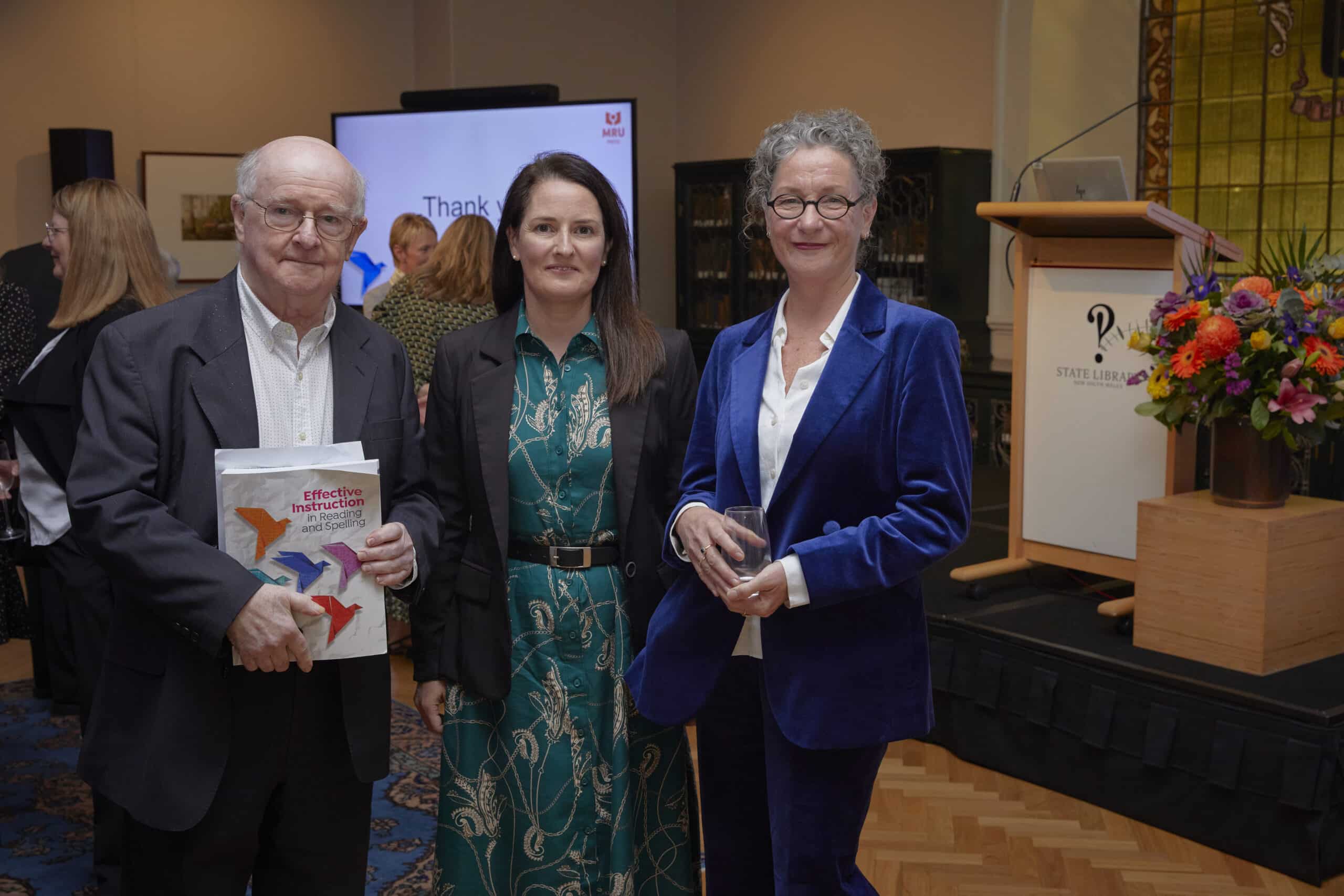An Australian-first collaboration between internationally renowned and leading local reading researchers is lifting the veil on the science behind how reading works, amid ongoing concern that many universities are failing to equip graduates to teach children to read effectively.
More than a dozen leading experts from across the globe have contributed to a comprehensive new handbook that seeks to fill the knowledge and capability gap left by initial teacher education in Australia, which continues to favour philosophical, rather than scientific, approaches to teaching reading.
Published by MultiLit, the nation’s leading researcher and developer of literacy programs and services, Effective Instruction in Reading and Spelling is grounded in the research literature comprising what has become known as the ‘Science of Reading’.

Co-author and MultiLit Senior Research Fellow, Dr Jennifer Buckingham OAM, said decades of rigorous research from domains spanning cognitive psychology, neuroscience, developmental psychology, education, and linguistics had informed what is known about how children learn to read.
Yet, repeated studies and government reviews have confirmed that initial teacher education students were not being taught this essential knowledge during their four-year degrees, she said.
“This book was born out of necessity and seeks to address persistent deficiencies within initial teacher education that have left many graduates ill-equipped and underprepared to teach children how to read and spell,” Dr Buckingham said.
“Our own recent review of the most popular introductory textbooks recommended as part of university teaching degrees found that not one provided serious, rigorous attention to the evidence base for initial reading instruction.
“Instead, there was a strong tendency to favour philosophical approaches based on how the authors believed literacy should be taught rather than the empirical scientific evidence of how children actually learn to read.”
Effective Instruction in Reading and Spelling features chapters written by influential international academics, including University of London Professor of Cognitive Psychology Kathy Rastle, University of Sussex Professor of Experimental Psychology Jane Oakhill, Lancaster University Professor of Language and Literacy Kate Cain, and Professor Carsten Elbro, head of the Centre for Reading Research at the University of Copenhagen.
Australian authors include the co-founders of La Trobe University’s Science of Language and Reading (SOLAR) Lab, Professor Pamela Snow and Dr Tanya Serry, speech language pathologist Dr Roslyn Neilson, and experts from the MultiLit Research Unit: Dr Nicola Bell, Dr Mark Carter, Dr Alison Madelaine, Dr Anna Notley and Dr Meree Reynolds.
Dr Buckingham and MultiLit directors Emeritus Professor Kevin Wheldall AM and Dr Robyn Wheldall also contribute several chapters.
Topics covered in the text include the scientific evidence base on how children learn to read, the alphabetic principle, evidence-based models of reading, the ‘Five Big Ideas’ of reading, effective instruction, and intervention, assessment, and implementation in the classroom.
Already on its second reprint, the book has been endorsed by the late Sir Jim Rose, author of the influential 2006 review of the teaching of early reading in the United Kingdom. Prior to his death earlier this year, Sir Jim described it as a “seminal work with the potential to secure best practice in this territory for years to come”.
Professor Wheldall said educators were increasingly coming to appreciate that reading was a highly complex skill and that children learned best when they were taught using methods backed by the strongest evidence of effectiveness.
“For far too long in Australia, ineffective, ideologically driven approaches to teaching reading have been allowed to dominate in classrooms based on the false premise that children acquire reading skills through immersion and exposure to print,” Professor Wheldall said.
“We currently have an estimated 57,000 young Australians starting secondary school classified as struggling readers.
“Putting this essential knowledge in the hands of those who need it the most – our classroom teachers – is a critically important first step to addressing the unnecessarily high rate of reading failure in this country.”